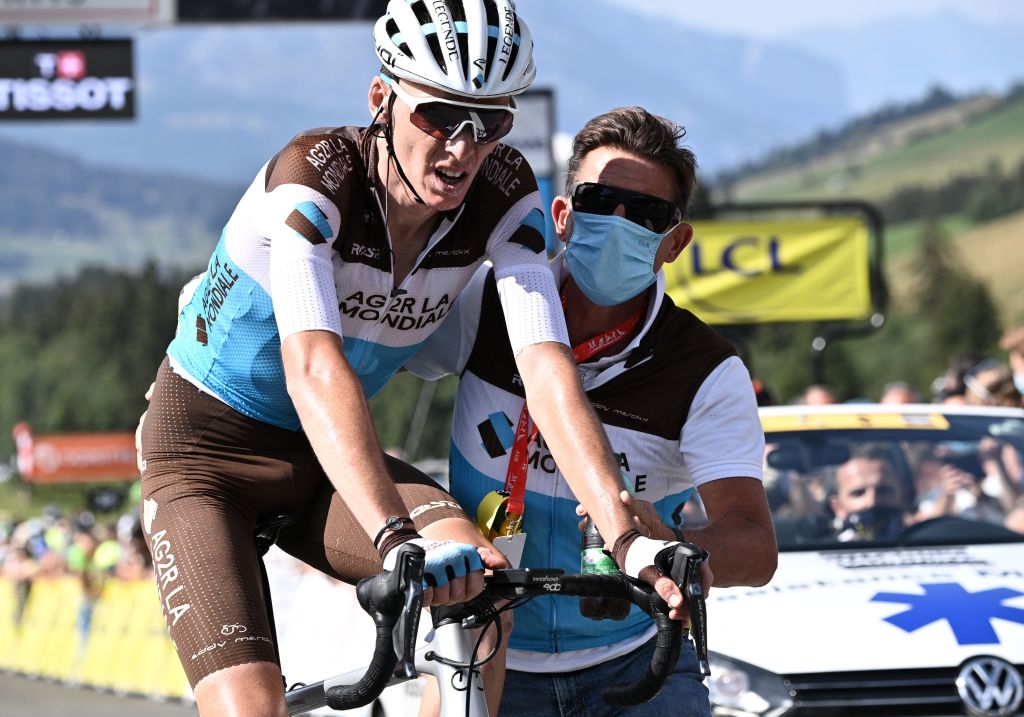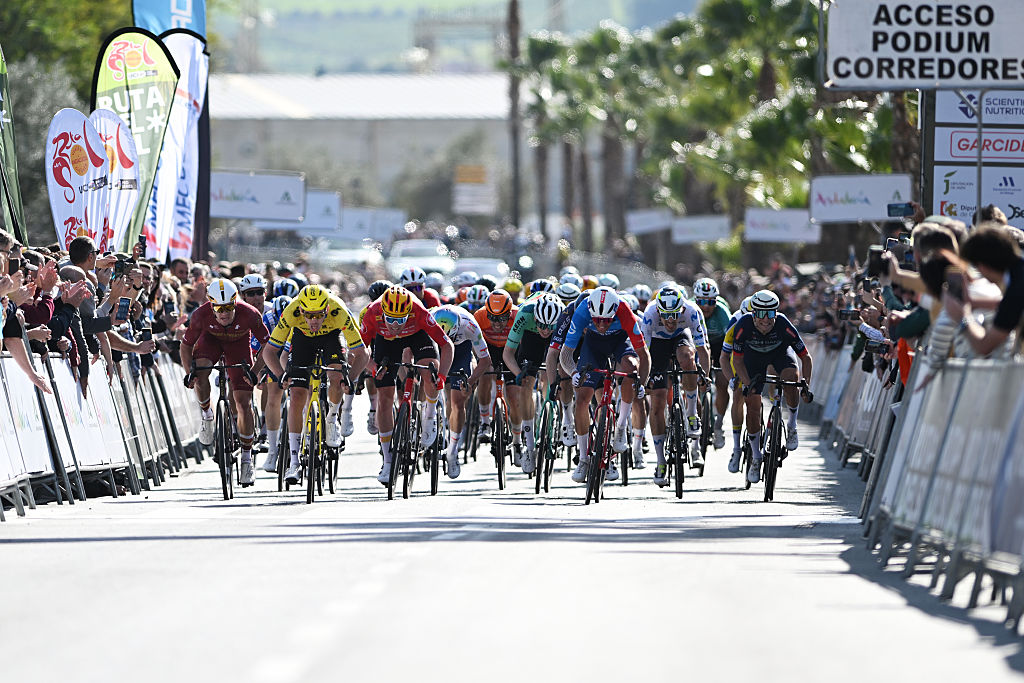UCI approves concussion protocol
New document recommends non-medical staff including riders know how to spot signs of concussion

The latest race content, interviews, features, reviews and expert buying guides, direct to your inbox!
You are now subscribed
Your newsletter sign-up was successful
The UCI announced on Thursday it has formally adopted a protocol for the rapid assessment of sports-related concussions (SRC) specifically for "fast-paced disciplines of cycling, such as road cycling".
Concussions represent between 1.3 and 9.1 per cent of cycling injuries, according to the UCI, and it is a challenge to properly diagnose concussions in the middle of a road, mountain bike or mass-start track event.
The new guidelines adds training of non-medical staff in spotting signs of a brain injury, with the UCI planning to publish symptoms cards to help team staff and riders understand what to look for.
The protocol was authored under the guidance of UCI medical director Xavier Bigard along with sports medicine expert Jeroen Swart, Mitchelton-Scott team doctor Roger Palfreeman, British Cycling's Nigel Jones, Team Ineos doctor Neil Heron and two other medical experts, Thomas Fladischer and Helge Riepenhof. It was finalized at the UCI's September Management Committee meeting and will be formally added to the UCI Medical Rules at the next meeting in January.
"The issue of sports-related concussion was one of my priorities, along with the misuse of tramadol, when I arrived at the UCI in 2018," Bigard said in a UCI press release.
"Cycling now has guidelines that set out the various phases involved in dealing with SRC (initial assessment, diagnosis, recovery, and return to competition). This protocol applies to all disciplines, while taking their specific characteristics into consideration. It will make it easier to trace individual SRC cases and better understand their place in cycling traumatology."
The protocol recommends that the first people to respond to the scene of a crash - usually sport directors, mechanics, other riders or coaches, check the riders for any obvious sign of concussion - feeling stunned or dazed, trouble with balance, headaches, slurred speech, changes in vision.
The latest race content, interviews, features, reviews and expert buying guides, direct to your inbox!
Two or more mild symptoms or one moderate to severe would indicate a high probability of a concussion and would trigger further evaluation.
The UCI's policy should help prevent situations like the one in this year's Tour de France, where Romain Bardet (AG2R La Mondiale) raced some 90 kilometres on stage 13 after a crash. He could hardly stand but was put back on his bike and finished the stage only to be diagnosed later with a 'small haemorrhage' on his brain.
If a concussion is suspected after the initial quick assessment, further evaluations would include a series of questions to assess cognition including 'What day is it' and 'What race are you in'. The next step is assessing any injury to the neck or spine and finally, a brief memory test by repeating words (eg. 'Person. Woman. Man. Camera. TV').
Other steps include a balance test, testing if the rider can repeat numbers backwards, and delayed recall of the same memory test words five minutes after the first assessment.
The protocol also specifies how long riders must wait before returning to racing based upon the severity of their injury. The full protocol can be read here.
Cyclingnews is the world's leader in English-language coverage of professional cycling. Started in 1995 by University of Newcastle professor Bill Mitchell, the site was one of the first to provide breaking news and results over the internet in English. The site was purchased by Knapp Communications in 1999, and owner Gerard Knapp built it into the definitive voice of pro cycling. Since then, major publishing house Future PLC has owned the site and expanded it to include top features, news, results, photos and tech reporting. The site continues to be the most comprehensive and authoritative English voice in professional cycling.
